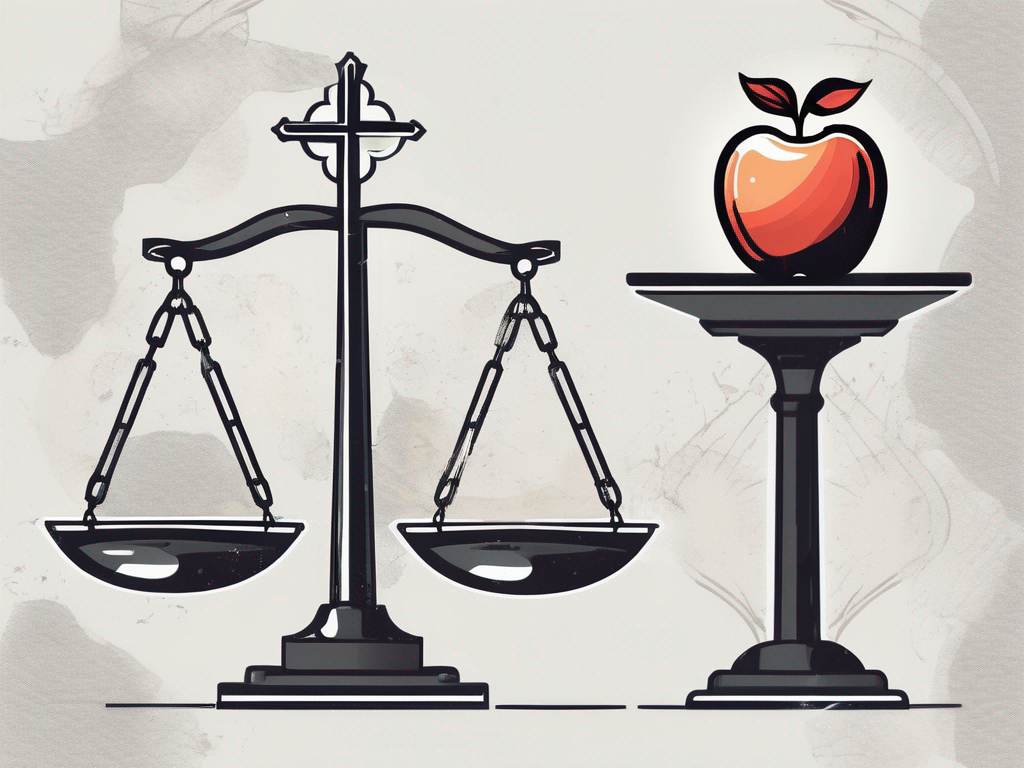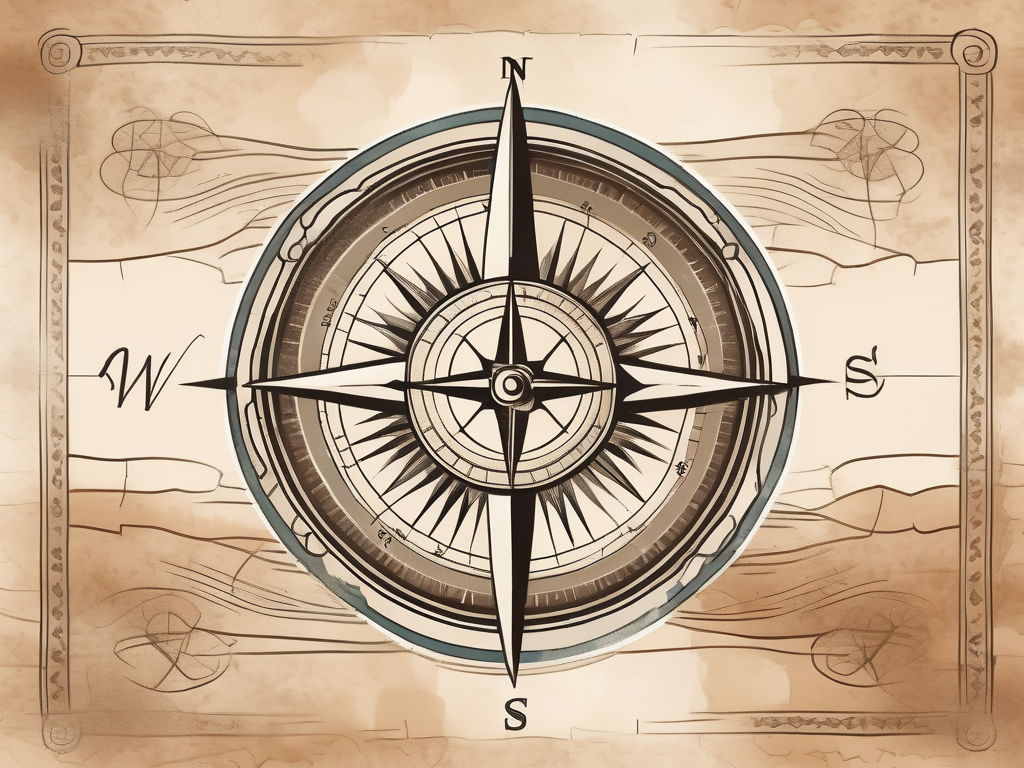In our exploration of theological concepts, one of the most intriguing topics is free will. The question of whether humans have the ability to make choices independent of divine intervention has been a subject of debate for centuries. So, what does the Bible actually say about free will? Let’s dive in and find out.
Understanding the Concept of Free Will
Before delving into the Bible’s perspective on free will, it’s crucial to have a clear understanding of what this concept entails. Free will refers to the ability of humans to make choices that are not predetermined or influenced by external forces, such as fate or predestination.
When we speak of free will, we are referring to the idea that individuals have the freedom to make decisions and take actions that shape their lives. It is the belief that we are not merely puppets on a predetermined stage but active participants in our own destiny.
Free will is a topic that has captivated the minds of philosophers, theologians, and thinkers throughout the ages. It is a concept that raises profound questions about the nature of human existence and the relationship between individuals and the world around them.
Throughout history, theologians have approached the concept of free will from various perspectives. Some emphasize the sovereignty of God and the limited autonomy of humans, while others emphasize the importance of human choice and responsibility in shaping their spiritual journey.
One theological perspective on free will is rooted in the belief that God, as the ultimate creator and sustainer of the universe, has complete control over all things, including human actions. According to this view, while humans possess a degree of freedom to make choices, their choices are ultimately subject to God’s will and divine plan.
On the other hand, there are those who argue that free will is an essential aspect of human nature and a fundamental part of our relationship with God. They believe that God, in His infinite wisdom, has granted humans the ability to make choices and exercise their autonomy within the boundaries of His moral framework.
Regardless of the theological perspective one adopts, the concept of free will raises important questions about the nature of morality, accountability, and the existence of evil in the world. It invites us to reflect on the complexities of human nature and the intricate interplay between our choices and the consequences that follow.
Exploring the concept of free will also leads us to consider the role of personal responsibility in our lives. If we have the ability to make choices, then we must also bear the consequences of those choices. This notion of accountability shapes our understanding of ethics and guides our decision-making process.
Furthermore, the concept of free will extends beyond the realm of theology and philosophy. It has implications for fields such as psychology, sociology, and law. Understanding the intricacies of human decision-making and the factors that influence our choices can shed light on various aspects of human behavior and societal dynamics.
In conclusion, the concept of free will is a multifaceted and thought-provoking subject that has captivated the minds of scholars and thinkers throughout history. It invites us to ponder the nature of human existence, the relationship between individuals and the divine, and the complexities of decision-making. Whether viewed through a theological, philosophical, or scientific lens, free will remains a topic of great significance and intrigue.
Biblical References to Free Will
Turning our attention to the Bible, we find numerous references that shed light on the notion of free will. Let’s examine how the Old and New Testaments address this topic.
Free Will in the Old Testament
In the Old Testament, we encounter passages that highlight humanity’s ability to make choices. For instance, in Deuteronomy 30:19, God presents Israel with a decision: “I call heaven and earth to witness against you today, that I have set before you life and death, blessing and curse. Therefore choose life, that you and your offspring may live.”
This verse suggests that humans possess the freedom to choose between life and death, implying the existence of free will.
Furthermore, in the book of Genesis, we see the story of Adam and Eve in the Garden of Eden. God gives them the freedom to eat from any tree in the garden, except for the tree of the knowledge of good and evil. This demonstrates that God granted them the ability to make choices, indicating the presence of free will.
Additionally, in the book of Joshua, the Israelites are presented with the option to serve either the gods of the Amorites or the Lord. Joshua urges them to choose whom they will serve, emphasizing their capacity to exercise free will in matters of faith.
Free Will in the New Testament
The New Testament also addresses the concept of free will, particularly in the context of salvation. In John 3:16, we read, “For God so loved the world that he gave his one and only Son, that whoever believes in him shall not perish but have eternal life.”
This verse indicates that individuals have the choice to believe in Jesus and receive eternal life. It implies that salvation is not predetermined but dependent on personal faith.
Furthermore, in the book of Acts, we see the apostle Peter preaching to a crowd, urging them to repent and be baptized for the forgiveness of their sins. This call to repentance implies that individuals have the ability to choose whether or not to turn away from their sins and follow Jesus.
Moreover, in the letters of Paul, we find numerous exhortations to live according to God’s will. These instructions imply that believers have the freedom to make choices in their daily lives, demonstrating the ongoing presence of free will even after accepting salvation.
In conclusion, the Bible contains various passages that affirm the existence of free will. Both the Old and New Testaments present examples of individuals being given choices and the responsibility to make decisions. These references highlight the significance of human agency and the ability to exercise free will in matters of faith and salvation.
Free Will and Predestination
Another aspect of the free will debate is its relationship with the doctrine of predestination. Let’s explore these two concepts further.
When discussing the concept of predestination, we delve into the belief that God has predetermined the fate of individuals, including their salvation or damnation. It suggests that God has selected certain people to receive His grace and eternal life. This doctrine has been a significant part of some theological traditions, shaping the way people understand their relationship with God and their place in the world.
However, this doctrine can seem contradictory to the idea of free will. If God has already determined our destiny, then do we truly have the freedom to make choices? This question has sparked intense debate among theologians and philosophers throughout history.
The Doctrine of Predestination
Predestination, as a theological concept, has its roots in various religious traditions. In Christianity, it has been a topic of discussion since the early days of the church. Theologians such as Augustine and John Calvin have explored the intricacies of predestination, seeking to understand how it fits within the broader framework of Christian belief.
For those who adhere to the doctrine of predestination, it provides a sense of comfort and assurance. They believe that God’s plan is perfect and that He has chosen them for a specific purpose. This belief can bring solace in times of uncertainty, knowing that their lives are guided by a divine hand.
However, predestination also raises challenging questions. If God has predetermined our fate, then what role does human agency play? Are we mere puppets in a grand cosmic theater, acting out a script written by a higher power? Or do we have the ability to make meaningful choices that shape our lives?
Reconciling Free Will and Predestination
Attempting to reconcile these seemingly contradictory concepts can be challenging. However, theologians and philosophers have proposed various ways to understand the relationship between free will and predestination.
One perspective suggests that God’s foreknowledge does not negate human free will. According to this view, God, in His infinite wisdom, can foresee the choices individuals will make without imposing those choices upon them. In other words, God’s knowledge of our decisions does not mean that He has predetermined them.
Another perspective argues that free will and predestination are not mutually exclusive but rather coexist in a complex interplay. They propose that humans have the freedom to choose, but God’s sovereignty remains intact. In this view, predestination does not negate free will but rather works alongside it, guiding and shaping our choices in ways that align with God’s ultimate plan.
Ultimately, the debate between free will and predestination is a profound and ongoing discussion within theological circles. It touches on fundamental questions about the nature of God, the human experience, and the relationship between the divine and the mortal. While no definitive answer may ever be reached, exploring these concepts can deepen our understanding of ourselves and our place in the world.
The Role of Free Will in Sin and Salvation
How does free will intersect with the concepts of sin and salvation? Let’s examine two critical aspects.
Free Will and the Nature of Sin
Free will plays a crucial role in understanding the nature of sin. It implies that humans have the choice to indulge in sinful behavior or resist temptation, demonstrating that sin is not an imposition but a product of individual decisions.
This understanding underscores the significance of personal responsibility and accountability for one’s actions.
When we consider the concept of free will in relation to sin, it becomes apparent that it is not merely a passive state of being. Rather, it is an active force that empowers individuals to make choices that align with their values and beliefs. This means that every decision made, whether it be to engage in virtuous acts or succumb to temptation, is a reflection of one’s exercise of free will.
Furthermore, the recognition of free will in the context of sin highlights the complexity of human nature. It acknowledges that individuals possess the capacity for both good and evil, and it is through the exercise of free will that one can navigate the moral landscape and make choices that lead to righteousness or sin.
Free Will in the Process of Salvation
In Christian theology, salvation is often seen as a transformative process that involves faith, repentance, and surrender to God. Free will plays a vital role in this process, as individuals must willingly choose to accept God’s grace and commit to a life of discipleship.
Thus, salvation hinges on the exercise of free will, manifesting as a conscious decision to follow Christ.
When we examine the relationship between free will and salvation, we find that it is not a one-time event but an ongoing journey. It is a continuous exercise of free will, where individuals are called to make choices that align with their newfound faith and commitment to God.
Moreover, the role of free will in the process of salvation emphasizes the importance of personal agency. It recognizes that salvation is not imposed upon individuals but is a result of their active participation and willingness to surrender their lives to God.
By exercising their free will, individuals can experience the transformative power of salvation, allowing it to shape their thoughts, actions, and relationships. This process of surrendering one’s will to God and aligning it with His divine purpose is a testament to the profound impact of free will in the journey towards salvation.
Debates and Controversies Around Free Will
Throughout history, the concept of free will has sparked intense debates and controversies. Let’s consider both historical and modern perspectives on this topic.
Historical Debates on Free Will
From the early Church Fathers to the Reformers, various theological debates have revolved around free will. Augustine and Pelagius, for example, clashed over the extent of human autonomy and the role of God’s grace in salvation.
These debates have shaped theological traditions and influenced how different Christian denominations understand and interpret free will.
Modern Interpretations and Controversies
In contemporary theological discourse, the question of free will continues to be a subject of divergence. Some theologians argue for a more limited understanding, emphasizing God’s sovereignty and predestination, while others assert the primacy of human choice and responsibility.
These differing interpretations add richness to theological conversations and remind us of the complexities inherent in understanding the interplay between divine sovereignty and human autonomy.
In Conclusion
Examining what the Bible says about free will leads us to a multifaceted understanding of this theological concept. While the text offers glimpses of human autonomy in decision-making, it also acknowledges the sovereignty of God and the intricacies of predestination.
Ultimately, the question of free will goes beyond simple answers, inviting us to engage in ongoing dialogue, embrace diverse perspectives, and explore the mysterious interplay between divine providence and human choice.












